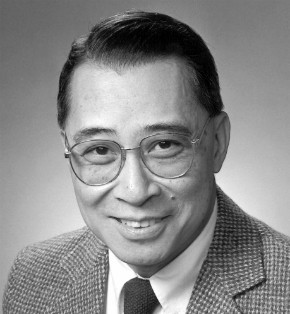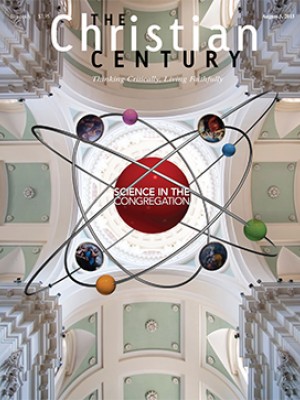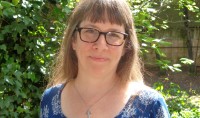Trafficking in ideas

When Anthony C. Yu died this spring, I realized that I’m still discovering the profound influence that this teacher has had on me.
When I arrived in Chicago fresh out of college, I had no idea that he was one of the most intellectually agile scholars in the University of Chicago Divinity School. But I soon learned that Mr. Yu worked in several languages, possessed a deep and intimate knowledge of Christianity, Buddhism, Taoism, and Confucianism, and was creating a body of work that has been described as not only comparative but contrapuntal. It moved across the boundaries of ancient and modern, Eastern and Western, explored the resonances among disparate works, and drew the field of religion and literature into a larger, more global conversation.
Mr. Yu, as we all called him, had high standards for scholarship and for life itself. His own life opened out in all directions. He was a gifted pianist, an accomplished poet, an admired cook, and an elegant dresser. He cherished excellence in all its forms. The kind of pleasure he took in following a well-wrought scholarly argument to a moment of illumination was akin to the pleasure he took in watching Michael Jordan drive to the basket. We all wanted to please him. A friend told me recently that when he wrote, “You write well,” on her first paper, she suddenly believed she could do whatever our doctoral program would ask of her.
Read our latest issue or browse back issues.
When I first met him, Mr. Yu had recently finished his masterful four-volume translation of the Chinese epic The Journey to the West, the story of a monk’s pilgrimage to India in search of Buddhist scriptures. This 13-year labor of love had emerged from a lifelong relationship with that great work. As a little boy, Mr. Yu had fled across southern China with his family to escape the violence of the Sino-Japanese War. His grandfather had helped to mitigate the terror of those days by telling him stories of the adventures of the human and animal characters in Journey to the West. No doubt because of the context within which he learned it, Mr. Yu could always hear its comedy and satire, as well as the profound spiritual yearnings and religious questions that enlivened it.
In his classroom I often felt that I had not read enough to keep up with the swift movement of his thought. Mr. Yu seemed to have read everything; he could cite an impossibly wide range of literature. I took as many classes with him as I could. He was a great talker but also a patient listener. During my moments of vocational uncertainty, he talked with me about teaching and scholarship as forms of ministry. His beloved teacher, Nathan Scott, had embodied that hybrid vocation, and Mr. Yu eagerly passed along the vision he had inherited.
At his memorial service, his students and colleagues recalled his passionate devotion to the vast human inheritance held in the world’s religions and literature. His former student Zhange Ni noted that “study was a personal and political commitment” for Mr. Yu.
Indeed it was. There was so much at stake for him—every time he sat down to the work of translation and scholarship, and every time he opened a book at the front of the classroom and began teaching. He resisted both universalism and particularism, seeking instead demanding, dynamic engagement across boundaries. In an address on liberal education at Hong Kong Baptist University, he underscored the value of a “vibrant and productive traffic of languages, ideas, and institutions,” and the capacity to “envisage values—intellectual and political—that transcend state power.” His standards for us and for himself were high because he believed that the work of reading and writing mattered for the life of the world.
At the end of the service, Dean Margaret M. Mitchell shared an audio recording of Mr. Yu responding to a panel discussion about his revised translation of The Journey to the West. Suddenly there was his voice full of life, the way we used to hear it in his classroom. The last thing we heard him say on the recording was this: “You will never understand religion if you marginalize fiction.”
I was sitting in a row of Mr. Yu’s former students, and his words made us catch our breath. It was a clear articulation of what he’d given us and what we try to pass on to our own students—the religious dimension of fiction, the fictive qualities of religion, the ways in which thinking along their intersection can deepen our understanding and experience of each.
Afterward, we kept returning to the words spoken by Mr. Yu on the recording. We felt that that precise conviction had been written on our hearts in our years as his students and that it was a gift to have heard him say the words aloud. They seemed to gather up the best threads of our diverse careers and knit us together once more as the students of Mr. Yu.
Former student Eric Ziolkowski spoke for us all when he said: “His memory is a blessing.”







